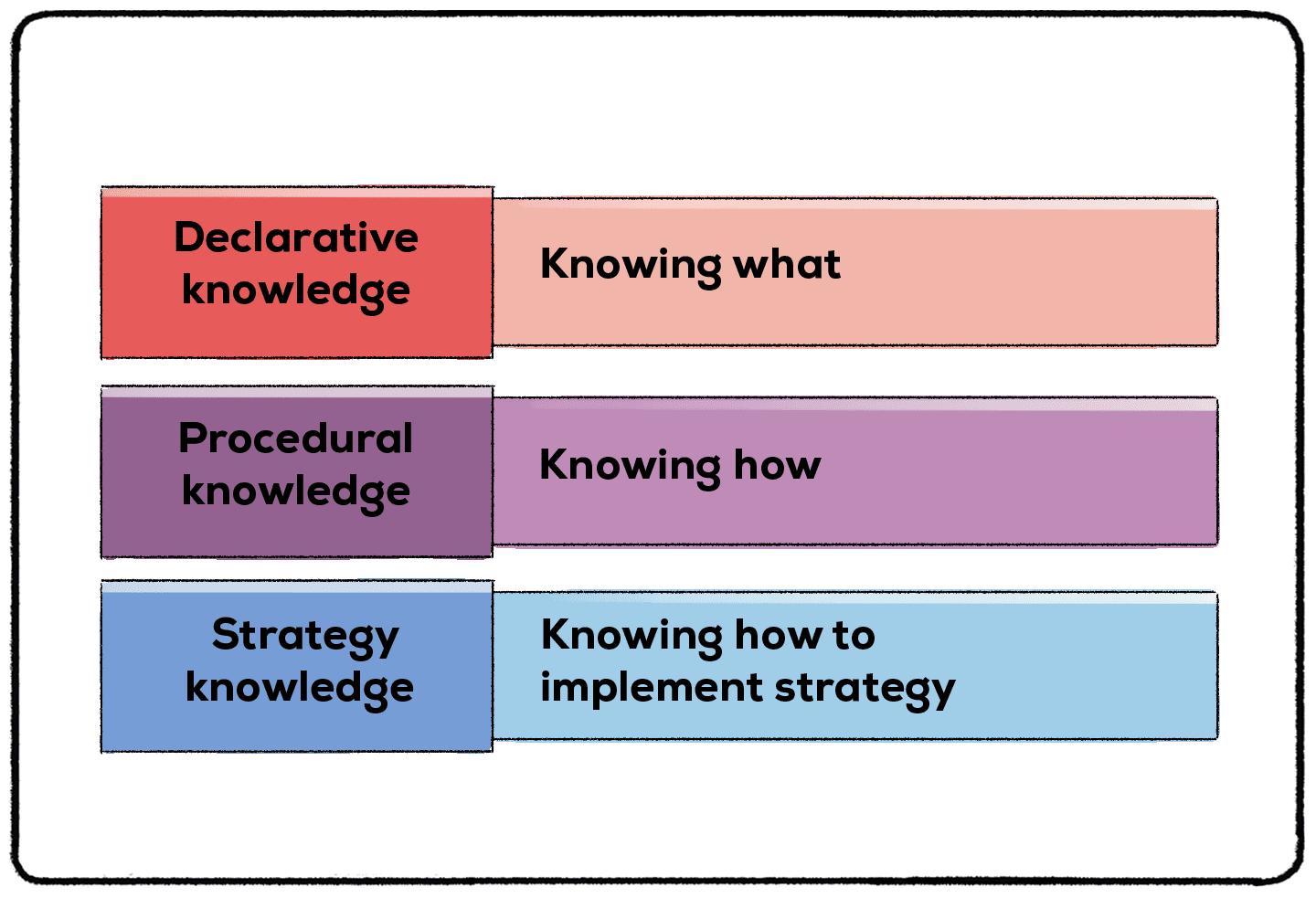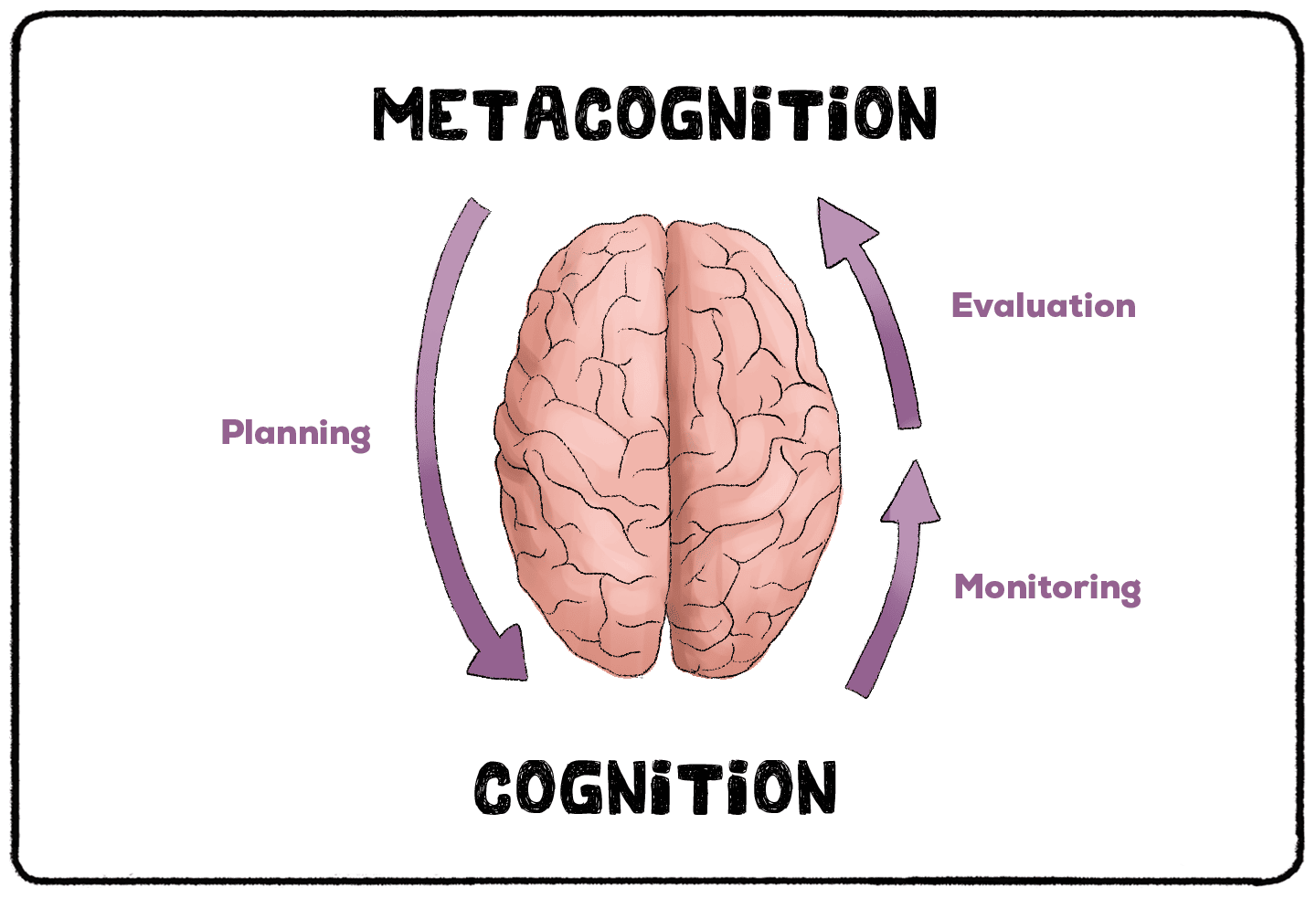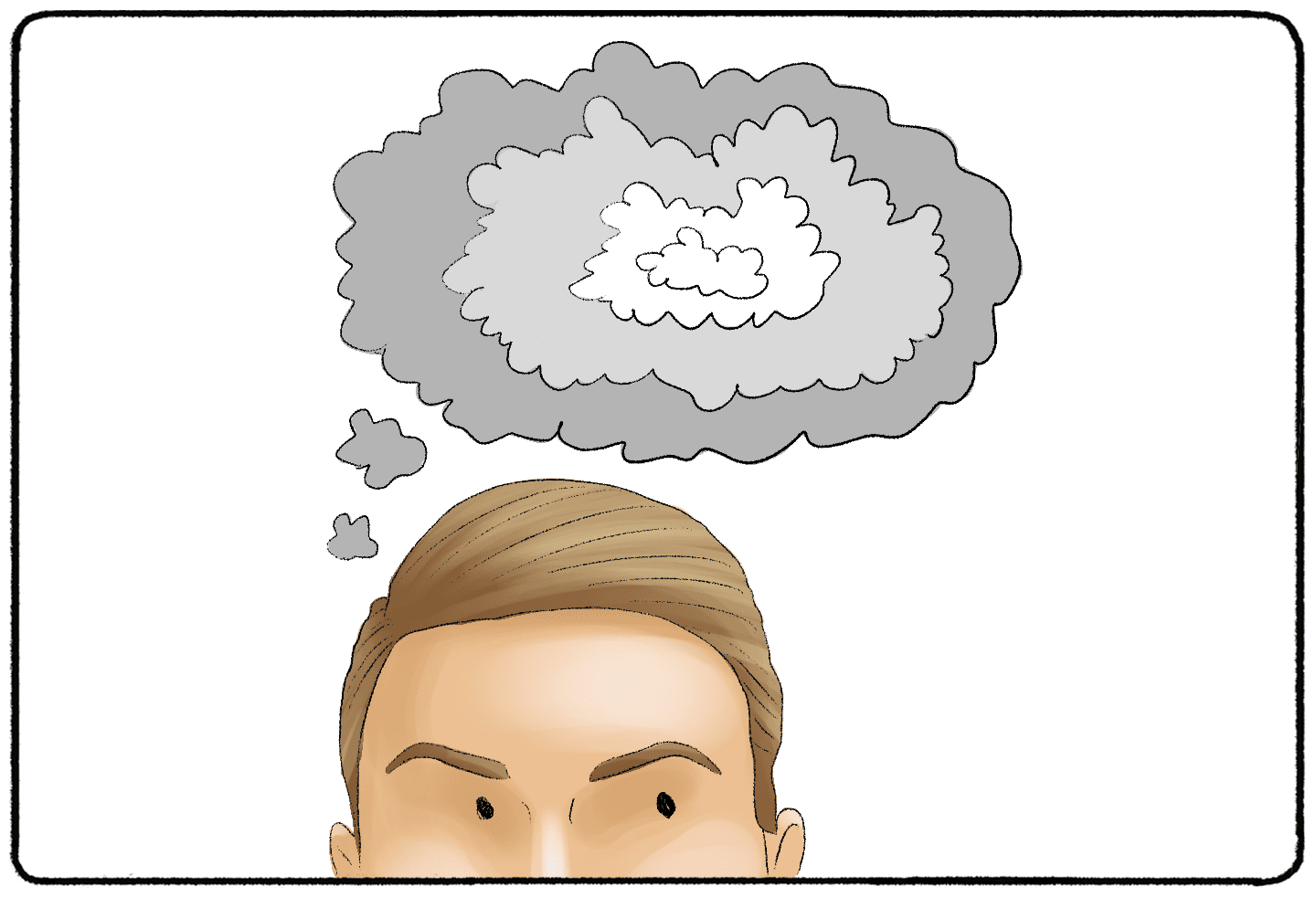What are you thinking about right now? Maybe you’re thinking about all of the things you are going to learn on this page. Can you guess how much information from this video you are going to remember? Or what strategies you can use to remember information from this video?
This whole page is all about thinking about the way you think. It’s about thinking about the way you remember things, process information, and make decisions. By purposeful thinking about your cognitive processes, you can begin to choose strategies that work for you and train yourself to learn more effectively and display a higher level of cognitive thinking.
What is MetaCognition?
Metacognition is the process of thinking and analyzing what, how, and why you think.
Let’s start by defining what metacognition is in the first place. It’s simply, “thinking about thinking.”
John Flavell first started to study and theorize about metacognition in the late 1970s. He was a student of Jean Piaget, who developed the Theory of Cognitive Development. Flavell believed that there were two parts to metacognition:
- Metacognitive knowledge
- Metacognitive regulation
By understanding these two concepts, we can start to train our brain and find the best strategies that work for us.
Metacognitive Knowledge
Metacognitive Knowledge is the information we know of ourselves and about others.
Are you bad with names? Do you need to make a list of items at the grocery store in order to buy everything?
The answers to these questions require metacognitive knowledge. Metacognitive knowledge is a collection of things that we know about ourselves and others when it comes to cognition.

There are three types of metacognitive knowledge:
- Declarative Knowledge
- Procedural Knowledge
- Strategy Knowledge
Declarative knowledge is knowledge about your own capabilities. Let’s use the example of names. You may either say you’re good with names or bad with names. That is based on declarative knowledge.
Procedural knowledge is the knowledge of a task at hand. The breadth of the task, and how much of the task you can complete, is included in procedural knowledge. You may be able to remember one person’s name at a time, but completely give up at the idea of remembering the names of five people all standing in a group with you.
Strategy knowledge is the knowledge of using strategies (and remembering to use strategies) in order to undergo cognition. Let’s say that you know that rhyming a person’s name with a funny nickname (i.e. “Dave the Shave” or “Lori the Story”) will help you remember their name better. Implementing that strategy requires strategy knowledge.
Let’s go back to procedural knowledge. You may think you’re good with names or you may think you’re bad with names. You may be wrong. But If you think you’re going to remember everything and meet your goals, you may not check in with yourself and your progress. If you believe that you need to improve, you might take the steps to pull from your procedural and strategy knowledge to improve. Then, you use metacognitive regulation.
Before we move onto metacognitive regulation, I want to give you some knowledge about metacognitive strategies. These strategies help us process information and solve problems. As you start to undergo metacognitive regulation, you might want to employ these strategies to help you improve your cognitive skills.

Metacognitive strategies include:
- Asking questions and evaluating what assumptions you made to come to conclusions and how possible bias influenced that conclusion
- Using autonomous learning to challenge your beliefs
- Learning with the help of a mentor or group
- Thinking aloud
- Rehearsing or memorizing information
- Organizing information with outlines, lists, etc.
- Explaining different subjects to yourself in your own words
- Allowing yourself to make errors and asking yourself where those errors may have come from
Metacognitive Regulation
Metacognition regulation refers to the ability to control your learning.
Metacognition is a hot word in the world of teaching. Teachers can use the process of metacognition and different metacognitive strategies to help students learn more effectively. Through three stages, the student (or in this case, you) can use this process and apply it to any cognitive task that is currently or has been a struggle.
Metacognition allows us to monitor learning and exert control to make sure we get the most out of the information that we are receiving. This is done through three stages:
- Planning
- Monitoring
- Evaluation
These stages cannot only be applied to any cognitive task, but also any other task that you have in mind. If you want to remember more, exercise more, floss more, you’ll need to plan out a strategy for achieving that goal, monitor your progress, and evaluate how your efforts and strategies helped (or didn’t help you) in the end.

Metacognitive experience
Where does our knowledge of our thinking come from? We pull from our experiences to create metacognitive beliefs. We can also create metacognitive experiences that further influence how we approach problems and learn new information.
This is why it’s so important not only to plan out strategies for achieving cognitive goals but also to monitor and evaluate progress. Once you find a strategy that works for you, your evaluation and monitoring of that success will help to shape your overall metacognitive experience.
Let’s say you’re looking for a new way to study. You look at the list of metacognitive strategies and decide that group study may be the best way to learn and remember important information. You plan to meet in a small group after school to learn a set of vocab words for your Spanish test.
Throughout the group session, you realize that you are focused while studying in the group. You aren’t distracting yourself with other tasks like you would when studying alone. Great.
You’re more likely to attend that study group next week, right? And when you get another A on your test, you’re even more likely to attend the next study group. And when you start a new class, you might immediately set up a study group, based on the positive experiences you had in the study group before. Now you’ve created a new belief about yourself and the way you learn that could have a positive impact on the rest of your life.
Getting rid of negative self-talk
Metacognition forces you to look at your own abilities and skills. What you say about yourself could reveal the reasons why you may fail to make progress or meet some goals outside of your thinking.
Let’s say you believe that you aren’t good at learning new things, you have a terrible memory, you’re not great at problem-solving, etc. As I mentioned earlier in the video, people tend to over and underestimate their abilities. You could be great at problem-solving, but if you tell yourself that you are not, you’re not going to try and solve problems. You limit yourself.
Change the way that you think about your thinking and strive for a more honest evaluation of yourself that contains a growth mindset. We all have the ability to improve our cognitive thinking skills. We just have to think about the way we think first.
